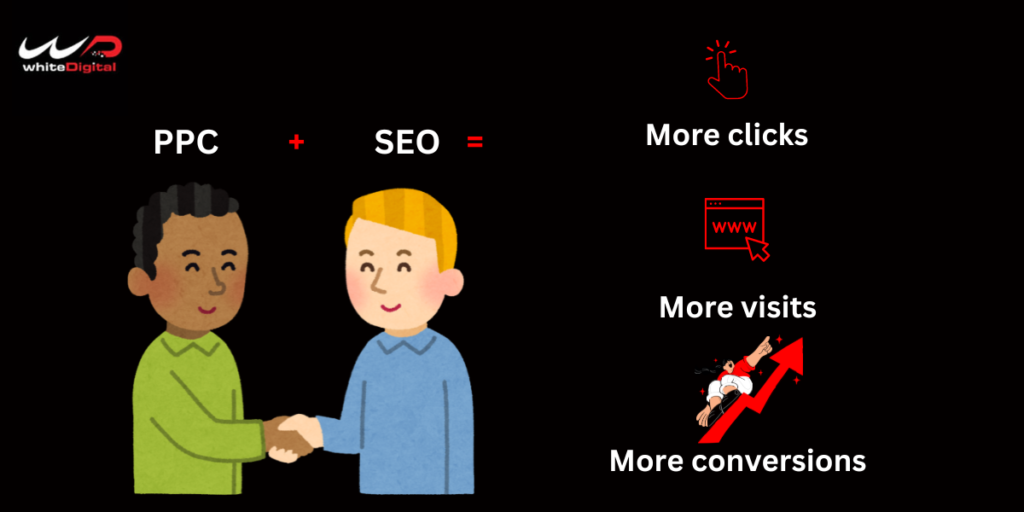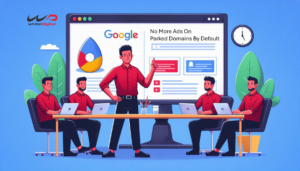Did you know that businesses integrating PPC with other digital marketing channels see an average increase of 30% in ROI? Additionally, companies that synchronize their PPC efforts with SEO can experience a 20% boost in organic traffic.
These statistics highlight the significant impact of an integrated digital marketing strategy.
You must be wondering now, is it mandatory that you integrate PPC with other digital marketing channels?
Reasons Why Should You Integrate PPC With Other Digital Marketing Channels?
Integrating PPC with digital marketing channels builds an advantage for your marketing strategy. It helps in creating consistent messaging, leveraging cross-channel data for better targeting and improving overall campaign performance.
Here are some major reasons why you need to integrate PPC with digital marketing channels:
- Synergy: Different channels can support and reinforce each other, creating a more powerful overall marketing impact.
- Consistent messaging: Integration ensures that your brand communicates consistently across all touchpoints.
- Improved targeting: By combining data from multiple channels, you can create more accurate customer profiles and target your ads more effectively.
- Better resource allocation: Integration allows you to identify which channels are most effective and allocate your budget accordingly.
- Enhanced customer journey: A well-integrated approach can guide potential customers smoothly through the sales funnel, from awareness to conversion.
What are local marketing channels in Digital marketing?
It is the easiest way to reach more people using various platforms. There are many local marketing channels, in that there are three basic categories that include,
- SEO
- Email Marketing
- Social Media
Now, let us look at how to integrate PPC with these three channels.
How to Integrate PPC with SEO?

Aligning keyword strategies To integrate PPC with SEO
PPC and SEO both rely heavily on keywords. By aligning your PPC and SEO keyword strategies, you can ensure that your marketing efforts are not competing against each other. Use PPC keyword data to identify high-performing keywords and incorporate them into your SEO strategy.
Use of PPC data to inform SEO PPC data can provide valuable insights for SEO
PPC campaigns generate a wealth of data that can be used to inform your SEO specialists.
Campaigns create a large set of data that can be used to enhance your SEO part. Analyze PPC data to identify which keywords, ad copy, and landing pages are driving the most conversions.
Utilize these insights to optimize your SEO content and improve the organic rankings of your company.
Enhancing SERP Visibility
Combining SEO with PPC can enhance your visibility on search engine results pages (SERPs). While SEO can help you achieve organic rankings, PPC ads ensure that your business appears at the top of search results. The presence of both elements increases your chances of capturing clicks and driving traffic to your site.
To integrate PPC with SEO you can try this:
- Conduct keyword research for both PPC and SEO simultaneously.
- Use PPC to test potential SEO keywords before investing in long-term optimization.
- Analyze PPC conversion data to identify high-value keywords for SEO focus.
- Create PPC ads for keywords where you have strong organic rankings to dominate SERPs.
- Use PPC to cover gaps in organic rankings while working on SEO improvements.
Integrating PPC with Email Marketing
Growing email lists with PPC
Use PPC to expand your email subscriber base by creating campaigns specifically designed to drive email sign-ups.
Promote valuable lead magnets through PPC to encourage subscriptions, offering users something of value in exchange for their contact information.
Use PPC to retarget website visitors with email sign-up offers, capturing leads who have shown interest in your brand but haven’t yet committed to a subscription.
Retargeting email subscribers
Re-engage your email list through PPC by uploading your email list to PPC platforms for retargeting.
Show tailored ads to subscribers based on their email engagement, delivering personalized messaging that aligns with their interests and behaviors.
Use PPC to re-activate dormant email subscribers, bringing them back into your marketing funnel with targeted ads.
Crafting supportive email campaigns
Align email marketing with PPC efforts by creating email campaigns that complement ongoing PPC initiatives.
Coordinate the timing of email sends with PPC campaign launches to reinforce your messaging and maximize the impact of both channels.
Integrating PPC with Email Marketing:
- Design PPC campaigns specifically to grow your email list.
- Promote lead magnets through PPC to encourage email sign-ups.
- Upload your email list to PPC platforms for retargeting.
- Create tailored PPC ads for different email subscriber segments.
- Use PPC to re-engage dormant email subscribers.
- Coordinate the timing of email campaigns with related PPC initiatives.
- Use email to nurture leads generated through PPC campaigns.
Integrating PPC with Social Media Marketing
Coordinating campaign
Align your PPC and social media efforts by running complementary campaigns across search engines and social platforms.
Use consistent messaging and visuals across PPC and social media ads to reinforce your brand message and create a cohesive user experience.
Time PPC campaigns to support social media initiatives and vice versa, maximizing the impact of your marketing efforts across channels.
Retargeting social media users
Use PPC to re-engage social media audiences by creating PPC remarketing lists based on social media engagement.
Use similar audiences in PPC based on your social media followers, expanding your reach to users with similar characteristics to your engaged social audience.
Leveraging Social Media Insights
Utilize social media data to enhance PPC by identifying popular topics and themes from social media to inform your PPC keyword strategy.
Test ad copy on social media before using it in PPC campaigns, leveraging the real-time feedback and engagement metrics of social platforms to optimize your messaging.
Here’s how you can try Integrating PPC with Social Media Marketing:
- Create PPC remarketing lists based on social media engagement.
- Run complementary campaigns across search engines and social platforms.
- Test ad copy on social media before using it in PPC campaigns.
- Use PPC to retarget users who have interacted with your social media content.
- Create lookalike audiences in PPC based on your social media followers.
Now that you know how to integrate with these marketing channels, let us learn a few strategies for agencies that would help while integrating.
Comprehensive Guide to Integrate PPC With Other Digital Marketing Channels
Integrating PPC with other marketing channels is crucial for maximizing your overall marketing effectiveness. By creating synergies between PPC and channels like SEO, content marketing, and social media, you can amplify your message, reach a wider audience, and drive better results.
Here’s a comprehensive guide on how to achieve this integration.
1. Align PPC Objectives with Business Goals
When aligning PPC objectives with business goals, it’s crucial to establish specific, measurable KPIs. For instance, if your business goal is to increase online sales by 20%, your PPC objective might be to generate a certain number of qualified leads or achieve a specific conversion rate.
2. Comprehensive Keyword Research
In addition to identifying high-value keywords, consider the user intent behind these keywords. Categorize keywords based on where they fall in the customer journey – awareness, consideration, or decision stage.
Use this to tailor your PPC ads and landing pages accordingly. Also, leverage negative keywords to refine your targeting and reduce wasted ad spend. Share these insights with your SEO and content teams to ensure a unified approach across channels.
3. Consistent Brand Messaging
Create a guide that reflects your brand style and tells people about your brand voice, tone, and key messaging points.
Ensure this guide is accessible to all teams involved in marketing efforts. Regularly audit your campaigns across channels to maintain consistency.
Consider creating templates for ad copy and landing pages that reflect your brand identity, making it easier to maintain consistency at scale.
4. Data Integration and Analysis
Arrange a dashboard that collects the data from various digital marketing channels you’re working on. This could be through tools like Google Data Studio or custom-built solutions.
Set up regular cross-channel reporting meetings where teams can share insights and identify opportunities for synergy.
5. Cross-Channel Remarketing
Remarket audience based on level of engagement. For instance, create separate lists for users who abandoned carts, those who viewed specific product categories, or those who engaged with your content.
Edit your remarketing messages accordingly. Consider using sequential retargeting, where the ad message evolves as the user interacts more with your brand across different channels.
6. Content Amplification
Identify your “hero” content pieces – those that have performed exceptionally well organically.
Create PPC campaigns specifically designed to amplify these pieces. Use audience targeting to reach users who have shown interest in similar topics.
Consider creating custom landing pages for PPC traffic that provide additional value or next steps, enhancing the user journey from ad to content.
These are a few things you need to know while integrating PPC with other marketing channels.
Conclusion
Integrating PPC with other digital marketing channels creates a more powerful and efficient marketing strategy, with each channel informing and enhancing the others, leading to improved overall performance.
Consistent messaging and data sharing across channels are crucial for success, as are tools and best practices such as marketing automation and unified branding.
By following these guidelines and continuously refining your approach, you can create a powerful, integrated digital marketing strategy with PPC at its core, maximizing your marketing effectiveness and ROI.













